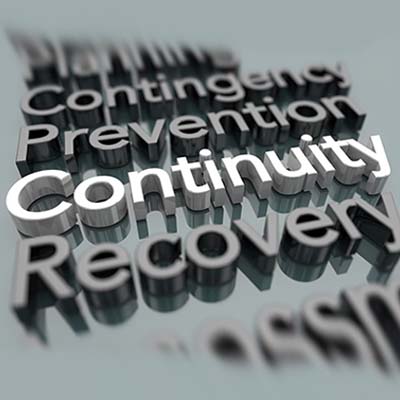Don’t Lose Your Company to a Disaster
Even when everything is going well, running a business can be challenging—all of that is to say that things are especially difficult when everything starts to go wrong, particularly in the realm of business continuity. While nobody likes to imagine the worst-case scenario, we always like to say that imaging the worst-case scenario can help you prepare for it, and it can take the sting away from dealing with it.
Consider the Risks
A business continuity plan means that you are considering all of the risks your business is likely to face, as well as those that may not be as likely. Some of them will have to do with your geographic location, like weather hazards or natural disasters, whereas others might involve operational downtime as a result of technology problems or loss of workforce. Regardless, you’ll need to have a plan in place to address the issues that surface in your business continuity plan.
Specifically, you’ll need to consider risks that would hinder your business’ ability to function. They might include things like fires, floods, or weather disasters, or they could include hardware failure and utility failure. One example that we are sure no one considered is the case for a pandemic as a business risk. Most companies were not prepared for something like the COVID-19 pandemic, and it forced organizations to make drastic operational changes on short notice.
You might think it’s possible to have a response to every single problem, but there will likely be something unaccounted for, no matter how well-prepared you think you are. Still, it’s best to think about these situations whenever possible and to do your best regardless, and one great catch-all solution for this is with a data backup and disaster recovery tool.
Data Backup and Recovery
If a business cannot recover data in the event of a disaster, chances are they will lose customers. Whether it’s the result of a malware attack, a component failure, or a natural disaster, losing data of any kind can be problematic. You’ll want to take steps to implement data backup that can keep your business operational even under the worst circumstances. This includes having a reliable and redundant data backup solution for all files and applications. You should keep an on-site backup, but you also must keep some that are available off-site in the event a disaster wipes out your office. A cloud-hosted backup can be extremely valuable in this regard.
A data backup solution is the insurance policy that can keep your organization safe in the event of a disaster of just about any kind. Here are some of the scenarios a data backup solution can help you navigate:
- Ransomware attacks: If your business becomes a victim of a ransomware attack, you could have hackers locking down files. Sometimes it is more beneficial to just restore a backup rather than entertain hackers with the idea that you will pay a ransom. After all, there is no guarantee that paying the ransom will even help you get your files back, and you don’t want to risk your organization’s continuity in that regard, either.
- Natural disasters: Some disasters will always take shape for a business, but depending on your location, you might be more prone to experience them than others. If you know that your infrastructure is backed up, you can rest assured knowing that even these unpredictable events won’t impact your operations.
- Human error or sabotage: did you know that end users are the cause for 88 percent of all data breaches? You should be ready to protect your data from all kinds of mistakes your employees could make, as well as sabotage from an internal data breach.
These are just three examples of how your organization could suffer without a disaster recovery solution in place. To learn more about how you can safeguard your business from countless threats and possibilities, reach out to us.



